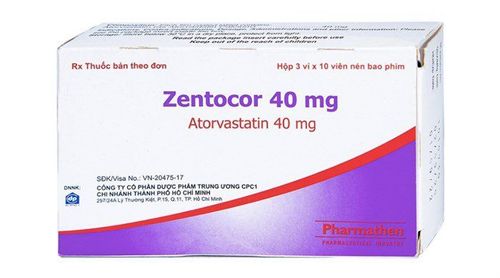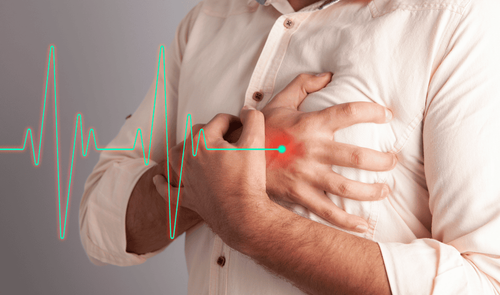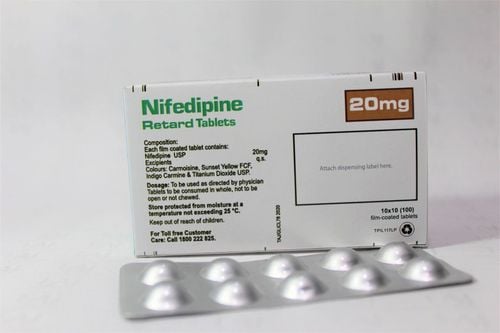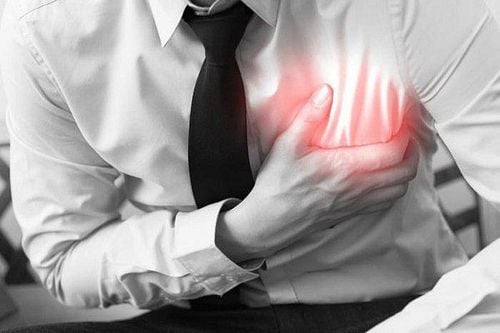This is an automatically translated article.
The article is professionally consulted by Master, Doctor Pham Van Hung - Department of Medical Examination & Internal Medicine - Vinmec Danang International Hospital
Coronary heart disease is one of the cardiovascular diseases known by many people because of its danger. Unlike hypertension, which is a cardiovascular disease that often occurs in the elderly, coronary artery disease can occur in both young and healthy people.
1. What is coronary heart disease?
Coronary artery disease, also known as ischemic heart disease, is a condition in which a coronary artery is partially narrowed or blocked, restricting blood flow to the heart, causing angina. The main cause of coronary artery blockage is the deposition of fatty substances (cholesterol) that combine with calcium and cells to form atherosclerotic plaques.In case of rupture of atherosclerotic plaque, acute thrombosis will form, which is the cause of acute coronary syndrome, including unstable angina and myocardial infarction.
2. Who is susceptible to coronary heart disease?
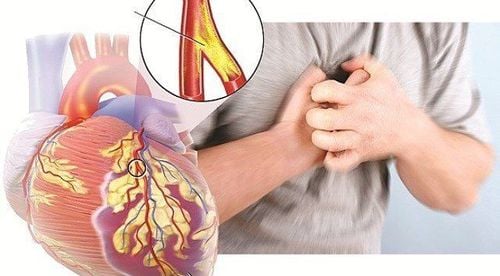
Người hút thuốc lá là đối tượng của bệnh mạch vành
Smoking: smoking increases the risk of coronary heart disease and many other diseases such as lung cancer, oral cancer,... Sedentary lifestyle: People who are not physically active are also at a higher risk of disease than those who are physically active. Hypercholesterolemia: not only increases the risk of coronary heart disease, but also increases the risk of cardiovascular events in general when blood cholesterol is higher than 1.8 - 2 g/l. According to studies, in the elderly, when blood cholesterol levels are higher than 10% of normal, there is a 30% increased risk of having a heart attack.
Age: elderly people will have a higher risk of disease, specifically men over 50 years old and women over 55 years old. Gender: Men are more at risk than women. Family factors: If someone in your family has coronary heart disease, you are also at risk of developing it. Having a number of other diseases such as high blood pressure, diabetes, dyslipidemia, etc. also increases the risk of coronary heart disease. Stress
3. How dangerous is coronary heart disease?
For the heart to function properly, the heart muscle needs to be supplied with enough energy and oxygen through the coronary arteries. When you have coronary artery disease, it means that one or more branches of this artery is partially or completely blocked, leading to a decrease in blood supply to the heart muscle. Usually when the coronary artery is narrowed by more than 50% of the lumen diameter, angina may occur.When you are physically active, the body will need more oxygen, so the heart has to work harder by increasing contraction, increasing heart rate, blood pressure increases, ... which means the need for energy of the myocardium also increased. And when the coronary arteries are narrowed, reducing the blood supply to the corresponding myocardium, the heart muscle is deprived of blood, causing angina.
Angina usually occurs with exercise and subsides with rest, so it is called stable or chronic angina. This condition affects the work and life of the patient. If not detected and treated promptly, the disease can progress to acute coronary syndrome.
In the case of coronary artery plaque rupture, angina can occur even when the patient is at rest, so it is called unstable angina. This is a condition of acute coronary syndrome. In addition, myocardial infarction is also a manifestation of acute coronary syndrome, when a coronary artery branch is completely blocked, causing the corresponding myocardial area to rapidly necrosis, which is very dangerous. Acute coronary artery disease can lead to sudden death or dangerous acute complications with high mortality such as:
Cardiogenic shock. Acute left heart failure. Ventricular arrhythmia.

Bệnh mạch vành có thể dẫn tới đột tử
Screening and screening for coronary heart disease is a must, especially for the elderly and those with a history of cardiovascular disease. The coronary check-up package at Vinmec International General Hospital provides customers with the right to visit with a Cardiologist, perform tests, ultrasound, chest X-ray... to help customers. health status monitoring, disease control.





